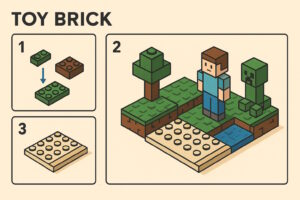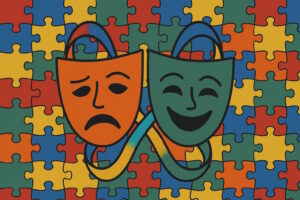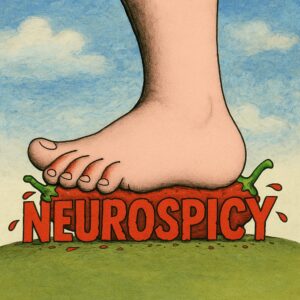
Are You A Minecraft Person Or A LEGO Person?
Are you a Minecraft person or a LEGO person? Both involve small rectangular things, mild obsession, and at least one meltdown when something gets destroyed. Throw in LEGO Minecraft sets and a neurodivergent brain that loves both structure and chaos,...

Masking 101: The Hidden Curriculum of Being Socially Acceptable
From rehearsing small talk to decoding office jargon, this irreverent take on masking explores the unspoken rules neurodivergent people navigate daily.

The Neurotypical Vanishing Act: Or, How to Become Socially Radioactive in One Diagnosis
People don’t run from autism — they run from their own discomfort about it. This brutally honest and bitingly funny article explores what really happens after you say, “I’m autistic,” and the strange art of being quietly excluded.

The Tyranny of Eye Contact: A Neurodivergent Field Guide
A neurodivergent take on the social minefield of eye contact, masking, and the unfortunate realities of looking anywhere but someone’s face—including, yes, accidental boob stares.

Why Autism Isn’t a Trend – And Why I Hate the Term ‘Neurospicy’
An essay on the rise of “neurospicy” as a trend, the misuse of ADHD as a parenting excuse, and why autism is not a quirky personality trait. Written from an autistic perspective.

The Sociology of Small Talk – Or, Why We All Hate Asking About the Weather
Exploring the awkward world of small talk – why we do it, why it feels weird, and why neurodivergent people might find it especially baffling. A sociological deep dive into the art of pointless conversation.